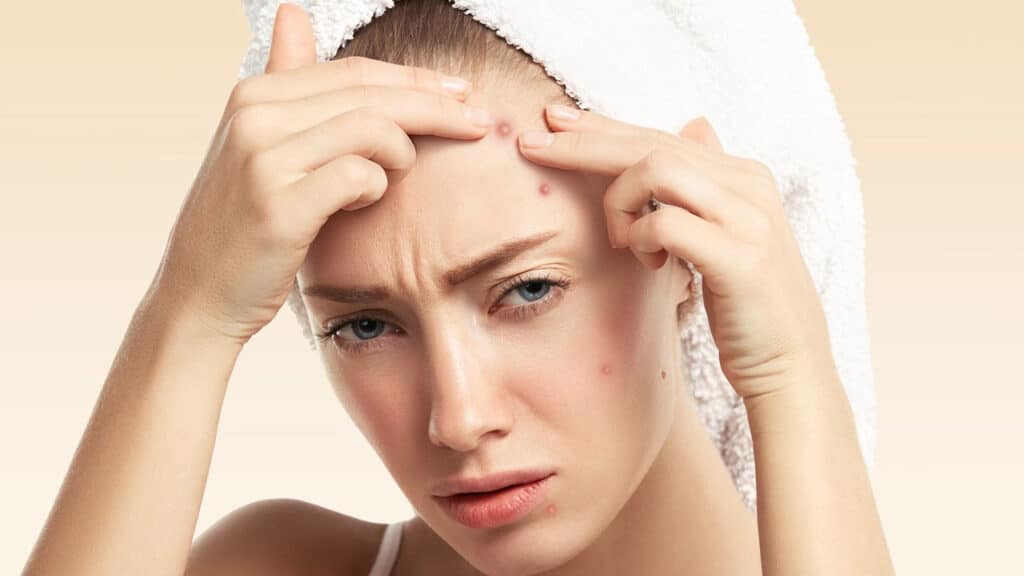Acne. It’s the great dread of many teenagers and more than a few adults. Hundreds of millions of people all across the world have acne at this precise moment, but that’s probably not a comforting thought to most people. It doesn’t matter how common it is or how minimal the damage, we’d all like it to just disappear.
Let’s start at the beginning. Acne is a skin condition that involves sebum (oil produced by your glands) and dead skin cells clogging your pores. This can have various impacts, most notably the appearance of pimples. In the worst cases, there can be scarring. Acne also often has an impact on mental health, damaging self-esteem and contributing to anxiety and/or depression.
There’s a strong genetic component to acne. Contrary to popular stereotypes, it’s not caused by a lack of cleanliness. Hormones may be a contributing factor; this would explain why it often starts in the teenage years and why its severity can change throughout the menstrual cycle. Sometimes infections are involved. We’re not as sure if diet, smoking or stress play a role.
Other forms of acne may have different causes. Acne mechanica is the result of physical damage to the skin, such as excess rubbing. Steroid acne is, unsurprisingly, caused by steroid drugs. Other medication-related acne is known as acne medicamentosa. Acne aestivalis is associated with exposure to UVA rays. People with occupational acne or chloracne usually work with powerful chemicals. Acneiform eruptions are a collection of skin conditions that look like acne for a differential diagnosis.
What you probably want to know most is how you can treat acne. What’s reassuring, though not necessarily in the middle of an outbreak, is that most cases eventually clear up on their own. There are medications that can adjust hormone levels, reduce inflammation, change sebum production and skin cell shedding or kill bacteria. Do not overdo washing your skin, but do use a fragrance-free moisturizer.
Physical procedures may include dermabrasion, laser resurfacing, fillers, chemical peels, subcision, or micro-needling. These may help reduce more severe scarring. Some people experiment with more alternative medicines, with varying levels of efficacy and evidential support.
The thing to remember about acne is that it is normal, and it doesn’t have to last forever. If you’re struggling mentally, you may need to seek some extra help from a therapist.




